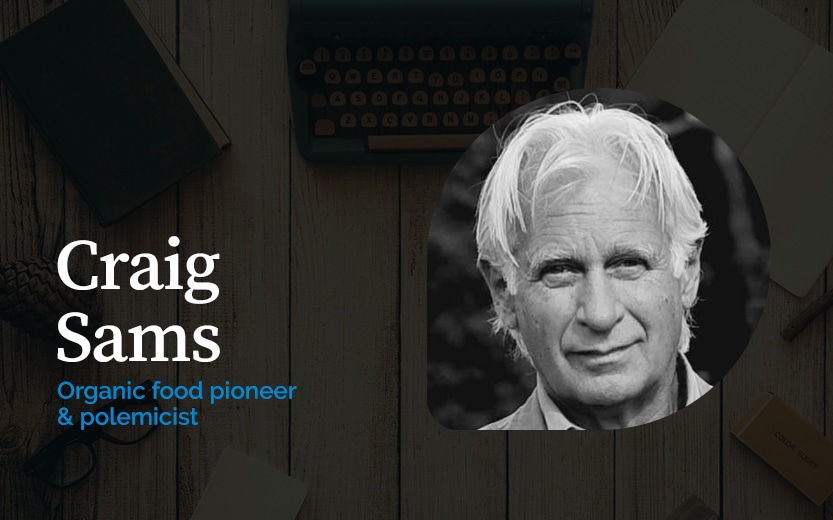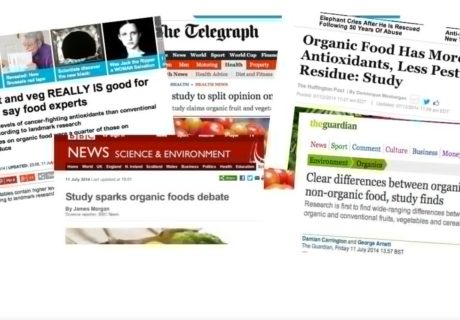Making the switch to organic agriculture on a global scale and turning waste biomass into biochar offers the real prospect of being able to reverse global warming, says Craig Sams
What’s happening out there? Is the world quietly going sane? A leading US Republican, Henry Paulsen, has come out strongly for action on climate change in the New York Times. For a political party that refuses to acknowledge burning fossil fuels can have anything to do with global warming, this is a tectonic event. Americans aren’t as stupid as their leaders think and are wising up to the fact that Hurricane Sandy was not God punishing us but to do with increasing atmospheric carbon dioxide levels.
The explosion of carbon dioxide in the atmosphere started around 1850 with the coal and steam-driven Industrial Revolution and the massive expansion of farmed land that was formerly wilderness or forest. My ancestors were part of this damage to the planet – great great grandpa Lars ploughed virgin prairie in Wisconsin, great grandpa Ole ploughed virgin prairie in Nebraska and grandpa Louis bought a tractor in 1926 so he could plough even deeper.
Every year the land they farmed gave up more of its life – losing ten tonnes of soil per hectare per year and as it decomposed, pumping tonnes of carbon dioxide into the atmosphere. They cut down a lot of trees too – which mostly went up in smoke. The same thing happened in Argentina, Brazil, Ukraine, Manchuria and the Punjab. We destroyed the soil that feeds us and filled the atmosphere with the gases that are cooking the planet.
Up to 1980 farming and fossil fuels were equally responsible for the increase in greenhouse gases; now fossil fuels are in the lead. But farming still emits more than ever. Every year 125,000,000 hectares of food-producing land give up the ghost – that’s 1.8% of the available land used up, farmed-out, lifeless.
The way forward is a carbon tax. How would it work? Every time you emit a tonne of carbon dioxide you pay the price – at the moment it’s around $15 per tonne. But once there’s a global market the price will go up. What does this mean for organic food? It will become cheaper than industrially-farmed food as organic farming uses half the fossil fuels to produce a given amount of food. Year after year it increases the carbon content of soil while industrial farms deplete it. The recent Rodale white paper (see story opposite) shows that if the world’s arable land and pasture was farmed organically the reduction in carbon emissions would be enough to cancel out ALL the annual increase in greenhouse gases. Rebuilding soils with biochar increases soil carbon and stimulates increased growth and extraction of CO2 from the atmosphere by crops. By farming organically and turning waste biomass into biochar instead of burning it we could reverse global warming. We would also eat less meat as it will cost a lot more when you include the carbon cost (vegetarians have a lower carbon footprint and vegans emit about a fifth of the CO2 per year of meat-eaters).
Add in the reductions in emissions from a transition to wind and solar and we can face the future with confidence and look our grandchildren in the eye instead of looking away guiltily because our shortsighted greed has robbed them of a secure future.
California has a carbon tax which has equivalence with Quebec’s; China has opened eight carbon exchanges in its key industrial regions; Europe has its Emissions Trading Scheme. Unilever and Pepsi have created the Cool Farm Calculator so the whole carbon footprint of a tub of Flora or a packet of crisps can be calculated precisely, and the food industry is picking up on it. The 2015 climate conference in Paris won’t be another failure – there are too many stakeholders who are determined to make it happen and have already achieved broad agreement on principles.
If the whole world farmed organically and ate organic food, reduced fossil fuel emissions, produced and shopped locally as much as possible, insulated houses, ate less meat and planted more trees, we could possibly face a global cooling crisis caused by sucking too much CO2 out of the atmosphere. But that’s a long way off, so let’s just put carbon back in the soil, where it does nothing but good.
 By Craig Sams
By Craig Sams
Organic food pioneer and polemicist
Craig Sams is Britain’s best known natural food pioneer. He is the founder of Green & Blacks, a former Soil Association chairman and the author of The Little Food Book.





